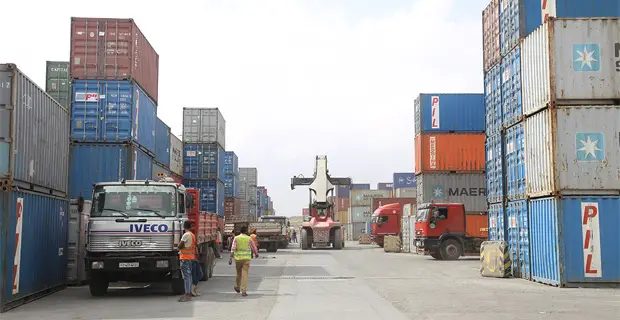Expansion works on the Modjo dry port in central Ethiopia has commenced. Minister of Transport Dagmawit Moges performed the ground breaking ceremony and said the expansion aims to modernize landlocked Ethiopia’s logistics sector.
Modjo Dry Port is Ethiopia’s first dry port development which started on a small scale at the end of 2009, relieving the congested Djibouti. It is a key transportation and logistics facilitator between Ethiopia’s hinterland and ports in neighboring Djibouti.
“In the logistics sector, the effect of undertaking successful work on quality, modernization and efficiency isn’t limited to our country, but will also highlight the role of our trade and logistics in the region as well as globally. Increasing our logistics capacity will make Ethiopia a prosperous and a preferable destination for investment inflow,” said Moges.
Also Read:World Bank moves to support Modjo Dry Port in Ethiopia
Focus on value chains
The expansion project involves construction of six warehouses, several road and pavement works, multipurpose buildings and various operating facilities. Chinese construction firm, China Civil Engineering Construction Corporation (CCECC) were awarded the project contract which is set to cost US $110m. It is being financed by the World Bank.
The project will focus on three value chains that are key to the government’s industrial policy to increase its export base, including: leather and leather products, textiles and garments, and agro-processed goods. The dry port currently handles 80% of the country’s import-export market along the Ethiopia-Djibouti trade corridor.
Moges also detailed her country’s long-term commitment to expand and modernize the logistics sector. Under the new 10-year development plan of the sector, the government plans construction of many road and rail projects.
“This includes development of road expressways, development of corridor lines individually and in clusters as well as development of new dry ports,” said Moges.
90

Leave a Reply